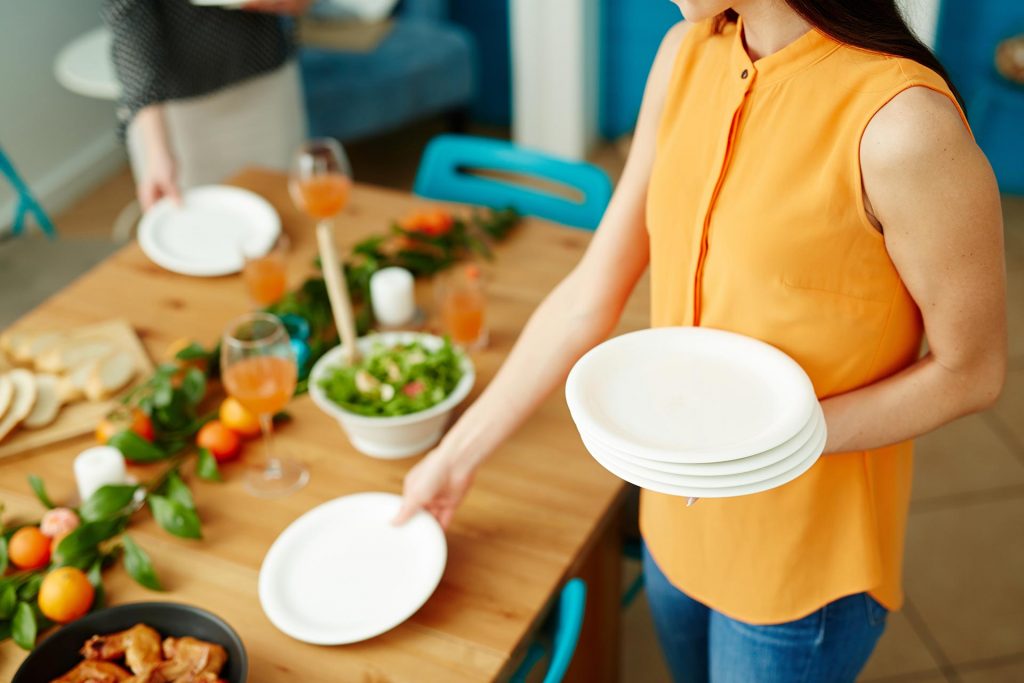National Garden Month: 3 Tips A Clean Garden
More and more people are getting to know the benefits of gardening, but they are not doing it the right way. Many people get to learn the hard way when they could have chosen an easier option. Starting it right will save you a lot of time and money. Having a garden will be a great source of joy because you will be able to see the fruits of your labor. A clean garden is not hard to have, but many people fail because they don’t do it right. Below are three tips that will go a long way in helping you have a clean garden.
Starting with proper tools
The most important thing when gardening is tools. With the right tools, you will have an easier time gardening. There is a wide range of options when it comes to gardening tools, and it will mainly depend on what you are planning to grow and the size of your garden. It is important to invest in quality gardening tools because you get what you pay for. If you have dug rocky or clay soil using a cheap shovel, then you know the importance of quality gardening tools.
You will still need to look at the price when buying gardening tools, but it should not be the main factor determining the tools to get. When you choose gardening tools that are on the lower side of the price range, then you will have to deal with discomfort when using, or the tools bending and breaking easily.
There are gardening tools that are a must when starting. You can buy more later, but the basics should be enough to get you started. The gardening tools you should get depends on what you will be growing in the garden.
When buying the tool, hold it in your hands and feel its weight. A tool made from hollow plastic is not going to work. The tools should not be too heavy that you feel uncomfortable when using them. Find tools that have a weight you feel comfortable with. It is important to choose something you feel comfortable using because it makes gardening even more fun
Compare the different options before buying. You should not choose the first one you come across. You don’t have to buy everything at once, but you can just start with the basics. Some of the most basic gardening tools are; Shovel and spade, spading fork, hoe, take, trowel, hose, planting row guide, and plant cages.
Prepping your yard
Gardening is going to need a lot of planning, especially when you want a clean garden. Some people have ended up regretting because they did not properly plan before gardening. Having a good plan in place will help you know what you need to do and when to do it.
Prepping your yard for gardening is key. A common mistake many gardeners make is using too-thin or lousy soil. Before you plant anything in your yard, start by preparing it. Dig the soil to loosen it then add organic material. This will be very important for your garden because it will help you get great results when it comes to your harvest and avoid disappointment.
If you are starting a new garden or bringing back to life an old one, you can start the prepping early like in autumn. The amendments you have added to your soil will meld and settle by the time springs comes.
When digging, try getting six to eight inches because that is what most plants are going to need for their roots. You can go deeper if you plan on planting root crops like potatoes and carrots, and you can go up to a foot or more.
Your garden should have a lot of organic matter. Try using shredded leaves, dehydrated manure, compost, or well-rotted horse manure. It is not that important to add organic matter if you have fertile soil, but it is going to improve the soil. You can use a 50:50 ratio when mixing organic matter and the soil.
You should have your soil tested so you can know what is lacking. If the soil is too acidic, you can sort it out easily. Organic matter is going to improve the quality of your soil.
Preventing weeds
If you were to track the hours you spend in your garden, then you will realize you spend a lot of it on weeding. It is important to have a good understanding of weeds so you can know how to prevent them. How can you deal with weeds?
Mulching is going to benefit your plants because it keeps the soil moist and cool and also deprives weeds of light.
Organic mulches can help in hosting carabid beetles and crickets, which devour weed seeds. When mulching, try replenishing I and keeping it about 2 inches deep (if the mulch is more than three inches, the soil will be deprived of oxygen).
When it rains and the ground is wet, you can prepare for a weeding session. There are different tools you can use when weeding, some examples being chickweed, henbit, or fishtail weeder. This works best when dealing with tap-rooted weeds like dock or dandelion.
When the ground is dry, slice the weeds below the soil line, and it is going to die off. Using a hoe with a sharp edge will be even better. If it is a mulched bed, then consider using an old steak knife to cut the weeds from their roots then patching the spaces left.
Depriving weeds of water works well when there is a drought. When you place a drip or soaker hoses under the mulch so it can irrigate plants, it leaves the weed without water, and they will die.
Gardening is fun, especially when you do it right. Invest time in learning more about gardening so you can get a good harvest from your garden. Get the right tools, prep the yard for gardening, and learn more on how to prevent weeds. When you do this, you are going to see great results in your garden.
Share this post:
Better Living for Today
Cycling Over The Age Of 60 Has Some Remarkable Benefits
Learning to ride a bike as a child can be…
Read MoreTips For Healthy Eating Over The Holidays
The holidays are a great time to spend with your…
Read More



